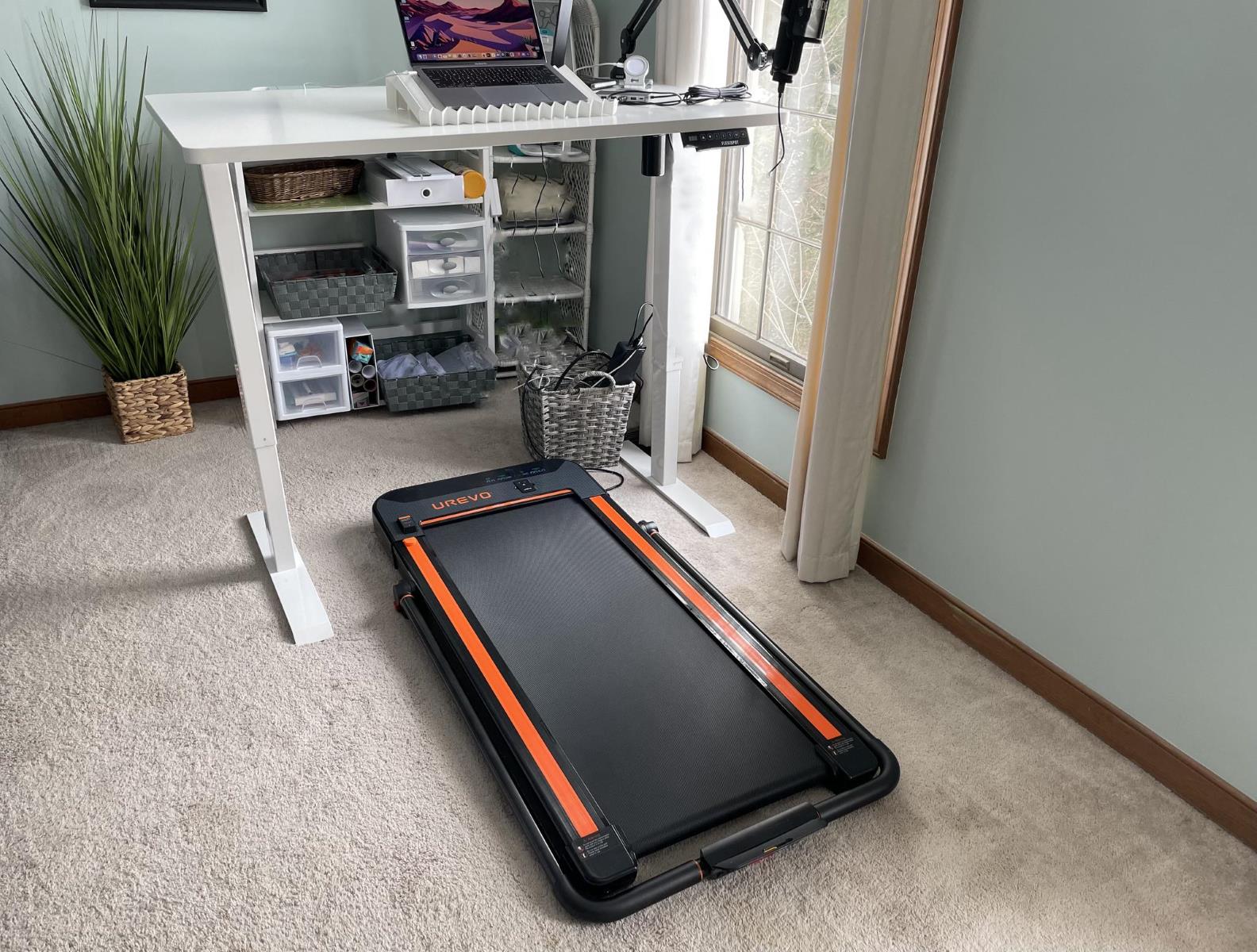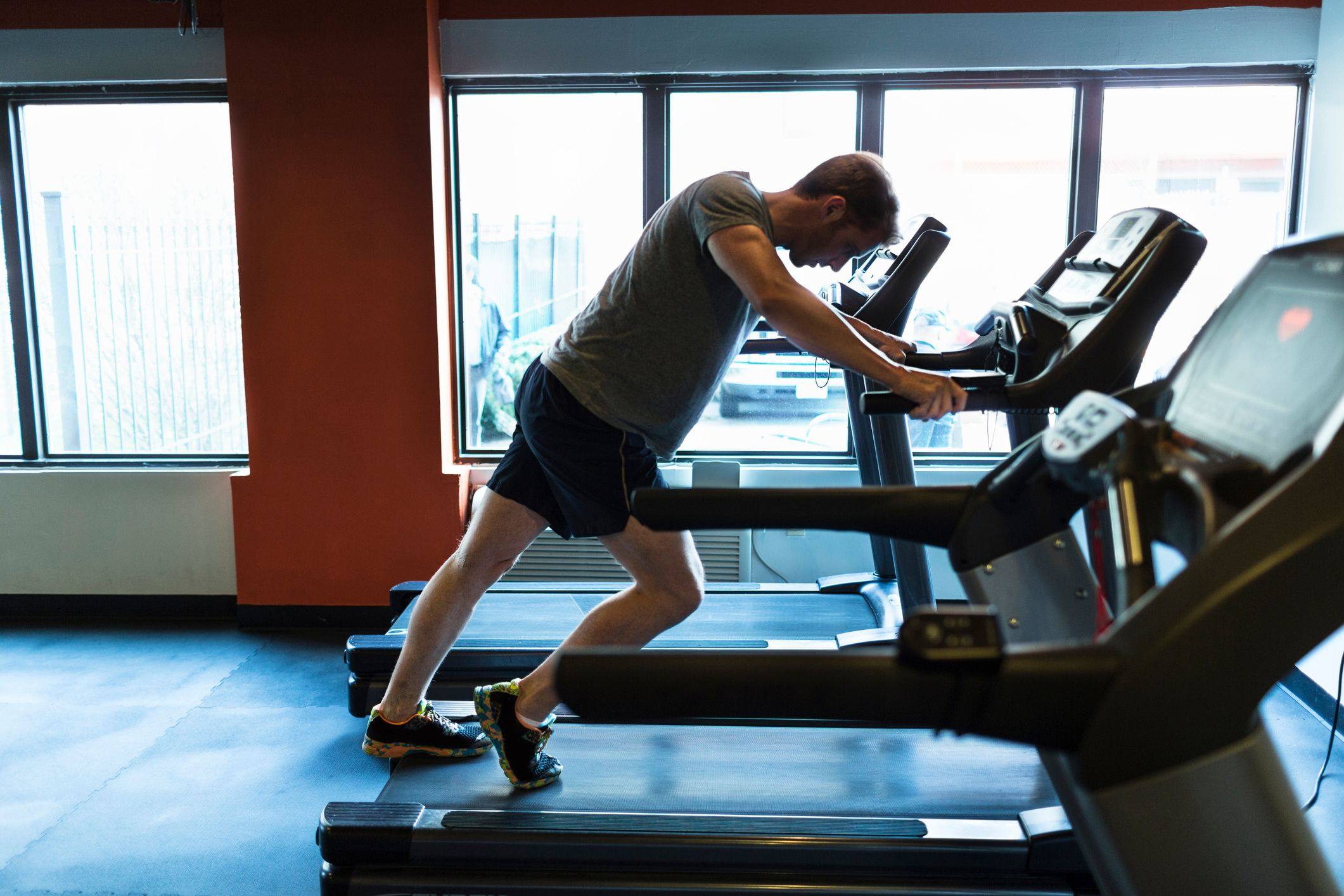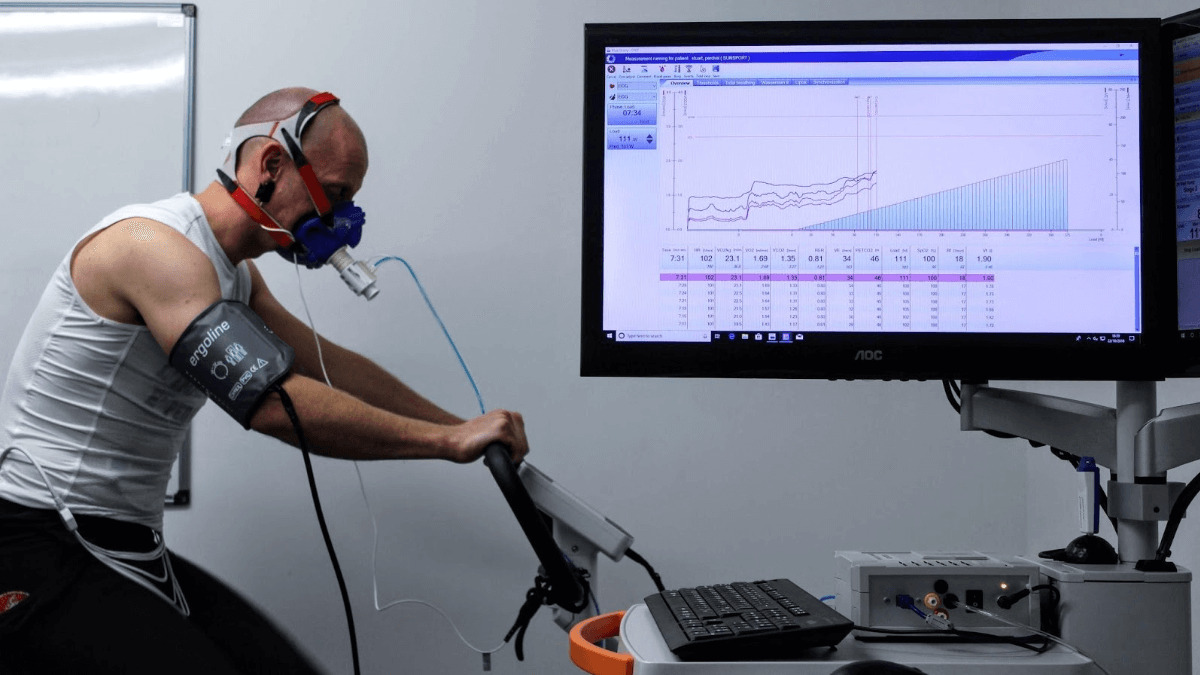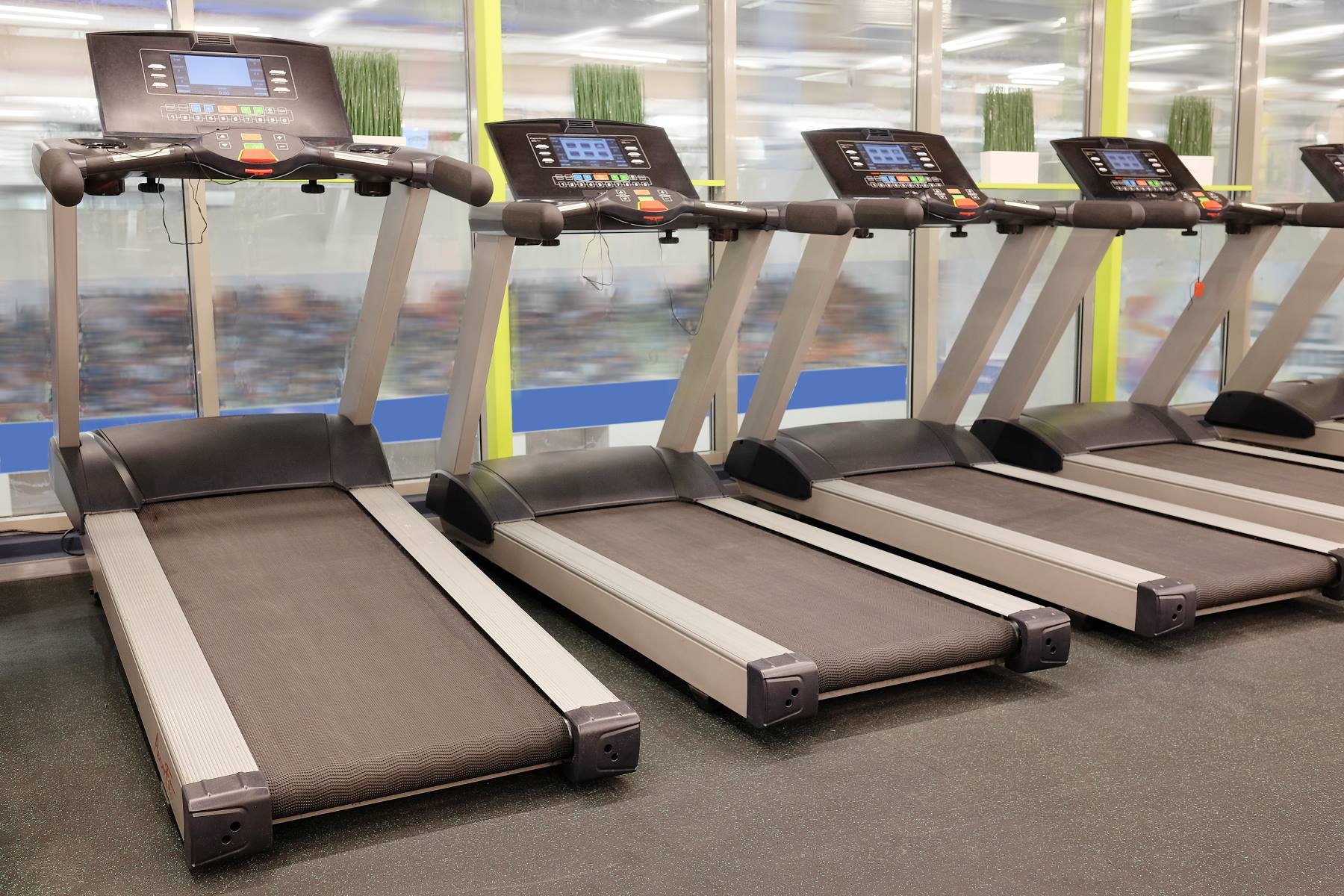Home>Misc>Featured>How Much Does A Treadmill Stress Test Cost


Featured
How Much Does A Treadmill Stress Test Cost
Modified: January 2, 2024
Find out the average cost of a treadmill stress test in 2021. Discover the top featured providers and get accurate pricing information.
Introduction
A treadmill stress test is a diagnostic procedure that is commonly used to evaluate the cardiac health and fitness levels of individuals. It involves exercising on a treadmill under controlled conditions while being closely monitored by medical professionals. This test is particularly useful in detecting any underlying heart conditions such as coronary artery disease or irregular heart rhythms.
During a treadmill stress test, the patient’s heart rate, blood pressure, and overall cardiovascular performance are closely monitored. The goal is to increase the heart rate to a specific target while evaluating any symptoms or changes in the heart’s activity.
This non-invasive test is widely recommended by healthcare professionals as it provides valuable information about a person’s heart function and their response to physical exertion. It helps determine if there are any blockages in the coronary arteries, assess the effectiveness of cardiac treatments, and evaluate overall cardiovascular fitness.
In this article, we delve into the specifics of a treadmill stress test, including why it is conducted, the factors that affect its cost, the average cost one can expect to incur, and additional costs to consider. We will also provide some tips on how to save money on a treadmill stress test should you need one. By the end of this article, you will have a better understanding of the benefits and costs associated with this important medical procedure.
What is a Treadmill Stress Test?
A treadmill stress test, also known as an exercise stress test or cardiac stress test, is a medical procedure that involves evaluating the heart’s response to exercise. It is performed to assess both the overall cardiovascular fitness and the presence of any underlying cardiac conditions in individuals.
This test is typically administered in a controlled clinical setting, such as a hospital or a specialized diagnostic center. The patient is hooked up to electrocardiogram (ECG) monitoring equipment, and blood pressure is monitored throughout the procedure. The test is supervised by trained medical professionals, including physicians and technicians.
The treadmill stress test is performed by having the patient walk or run on a treadmill at increasing levels of intensity. The speed and incline of the treadmill are gradually adjusted to simulate exercising at different levels of difficulty. Throughout the test, the patient’s heart rate, blood pressure, and ECG readings are continuously monitored to evaluate the heart’s response to the exercise.
The purpose of the treadmill stress test is to identify any abnormalities or irregularities in the heart’s rhythm and to determine if there are any blockages in the coronary arteries. It helps assess the overall cardiovascular fitness of the individual being tested and provides valuable information about their heart’s performance during physical exertion.
The treadmill stress test is a versatile diagnostic tool that allows healthcare professionals to evaluate the effectiveness of cardiac treatments, establish exercise tolerance levels for patients, and make informed decisions regarding the need for further intervention or medical management.
In some cases, additional imaging techniques such as echocardiography or nuclear imaging may be combined with the treadmill stress test to provide a more comprehensive assessment of the heart’s function.
Overall, a treadmill stress test serves as an important diagnostic tool to evaluate cardiac health, identify any underlying heart conditions, and guide appropriate treatment plans. It is a widely used procedure that has proven to be effective in assessing a person’s cardiovascular fitness and identifying potential heart-related issues.
Why is a Treadmill Stress Test Conducted?
A treadmill stress test is conducted for a variety of reasons, primarily to evaluate the heart’s capacity to handle physical exertion and identify any underlying cardiac conditions. Here are some of the main reasons why a healthcare professional may recommend a treadmill stress test:
- Assessing heart health: A treadmill stress test can help determine the overall cardiovascular fitness and health of an individual. It provides valuable information about how well the heart functions under increased workload and activity levels. By monitoring the heart’s response to exercise, healthcare professionals can assess its ability to pump blood efficiently and identify any signs of abnormal heart rhythms.
- Diagnosing coronary artery disease: This test is particularly useful in diagnosing coronary artery disease, which occurs when the arteries that supply blood to the heart become narrowed or blocked. During the treadmill stress test, if there are any blockages in the coronary arteries, the heart may not receive an adequate blood supply. This can be observed through symptoms such as chest pain or changes in the ECG readings obtained during the test.
- Evaluating treatment effectiveness: For individuals who have been diagnosed with heart conditions or have undergone cardiac procedures such as coronary stent placement or bypass surgery, a treadmill stress test can help evaluate the effectiveness of their treatment. It allows healthcare professionals to compare the heart’s performance before and after the intervention, providing valuable insights into the success of the procedure in improving blood flow and overall cardiac function.
- Establishing exercise tolerance: A treadmill stress test is used to determine an individual’s exercise tolerance level. It helps healthcare professionals establish safe and appropriate levels of physical activity for patients with known cardiac conditions. By understanding the heart’s response to exercise, healthcare providers can prescribe tailored exercise programs that maximize health benefits while minimizing the risk of complications.
- Screening for heart disease: In some cases, a treadmill stress test may be recommended as part of routine screening to assess the risk of heart disease. This is particularly true for individuals with certain risk factors such as a family history of heart disease, high blood pressure, diabetes, or high cholesterol levels. The test can help identify early signs of heart disease or abnormalities in the heart’s function before symptoms become apparent.
In summary, a treadmill stress test is conducted to assess heart health, diagnose coronary artery disease, evaluate treatment effectiveness, establish exercise tolerance, and screen for heart disease. By evaluating the heart’s response to exercise, this test provides valuable information that can guide healthcare professionals in making informed decisions regarding treatment plans and lifestyle recommendations for their patients.
Factors Affecting the Cost of a Treadmill Stress Test
The cost of a treadmill stress test can vary depending on various factors. Understanding these factors can help you better estimate the potential cost associated with the procedure. Here are some key factors that can influence the cost:
- Geographic location: The cost of a treadmill stress test can vary based on your geographic location. Healthcare costs can differ significantly between regions, cities, and even individual healthcare facilities. For example, medical services in urban areas may generally be more expensive than in rural areas.
- Medical facility: The type of medical facility where you choose to have the treadmill stress test can impact the cost. Hospitals and specialized diagnostic centers may have higher fees compared to independent clinics or outpatient centers. It is essential to consider the reputation and quality of the facility when making your decision.
- Additional tests or procedures: Sometimes, a treadmill stress test may be combined with additional imaging tests or procedures to provide a more comprehensive evaluation of the heart’s function. These additional tests, such as echocardiography or nuclear imaging, can increase the overall cost of the procedure.
- Insurance coverage: Your insurance coverage plays a significant role in determining the out-of-pocket expenses for a treadmill stress test. The extent of coverage provided by your insurance plan, including deductibles, co-pays, and co-insurance, will impact your overall cost. It is essential to review your insurance policy and consult with your insurance provider to understand your coverage and potential costs.
- Medical provider fees: The fees charged by the medical professionals involved in administering the treadmill stress test can vary. This includes the fees for the supervising physician, nurses, technicians, and any specialists involved in the procedure. Different providers may have different fee structures, so it’s worth comparing costs and understanding what is included in the fees.
- Time and duration: The length of the treadmill stress test can affect its cost. Longer or more complex tests may involve additional monitoring time and equipment, which can result in higher overall costs. The specific protocols and duration of the test can vary based on individual circumstances and the healthcare provider’s preferences.
It’s important to note that the cost of a treadmill stress test is not solely based on the price. It is essential to consider the quality of care, expertise of the medical professionals, and the overall reputation of the healthcare facility when making your decision. While cost is a significant factor, prioritize finding a reputable and experienced provider who can offer accurate and reliable results.
Average Cost of a Treadmill Stress Test
It is important to note that the cost of a treadmill stress test can vary significantly depending on various factors, as mentioned earlier. However, we can provide a general range to give you an idea of the average cost you may expect to incur.
On average, a treadmill stress test can cost between $500 and $2,000. This cost typically includes the medical facility fees, professional fees, and the necessary equipment and monitoring during the procedure.
Keep in mind that this range is an estimate, and the actual cost can vary based on the factors discussed earlier, such as geographic location, medical facility type, and additional tests or procedures involved.
It is always a good idea to contact your healthcare provider or the facility where you plan to have the test to get a more accurate estimate of the cost. They can provide you with information specific to your situation, including any insurance coverage you may have and potential out-of-pocket expenses.
Before undergoing a treadmill stress test, it is also advisable to check with your insurance provider to understand your coverage and any pre-authorization requirements. This will help you avoid any unexpected costs or surprises.
Furthermore, it’s important to consider the value and benefits of a treadmill stress test in assessing and monitoring your cardiac health. While cost is a factor to consider, the information obtained from the test can be crucial in catching potential heart conditions early and guiding appropriate treatment plans.
If you are concerned about the cost, there are strategies you can employ to help mitigate expenses, such as exploring payment options, negotiating with healthcare providers, or looking for financial assistance programs. Additionally, some healthcare facilities offer discounted rates or packages for specific diagnostic procedures, so it can be worth exploring these options.
Ultimately, the cost of a treadmill stress test should be viewed in the context of the potential benefits it provides in assessing your cardiac health and guiding appropriate medical care. It is a valuable tool in diagnosing and monitoring heart conditions, helping to ensure your overall wellbeing.
Additional Costs to Consider
When considering the cost of a treadmill stress test, it is important to be aware of potential additional costs that may arise. These costs can vary depending on individual circumstances and specific healthcare providers. Here are some additional costs to consider:
- Preparation and consultation fees: Your healthcare provider may charge a separate fee for the initial consultation and preparation for the treadmill stress test. This may include a discussion of your medical history, a physical examination, and any additional tests or evaluations needed before the procedure.
- Follow-up appointments or evaluations: In some cases, the treadmill stress test may require follow-up appointments for further evaluation or discussion of the results. These appointments may incur additional fees, depending on your healthcare provider and insurance coverage.
- Additional diagnostic tests: Depending on the results of the treadmill stress test, your healthcare provider may recommend additional diagnostic tests or imaging procedures to get a more detailed assessment of your cardiac health. These tests, such as echocardiograms or nuclear imaging, may have separate costs associated with them.
- Medication and anesthesia: In certain situations, medication or anesthesia may be required during the treadmill stress test. The cost of these medications can be an additional expense to consider. It is important to discuss the potential need for medication or anesthesia with your healthcare provider and understand any associated costs.
- Insurance coverage limitations: While insurance coverage can help offset the cost of a treadmill stress test, it is important to review your policy to understand any limitations, such as deductibles, co-pays, or coverage restrictions. Some insurance plans may only cover a portion of the cost, leaving you responsible for a portion of the expenses.
- Travel and accommodation: If you need to travel to a different city or healthcare facility for the treadmill stress test, additional costs for transportation, accommodation, and meals may need to be considered. These costs can vary depending on your location and the distance you need to travel.
It is essential to communicate with your healthcare provider and insurance company to understand the potential additional costs associated with the treadmill stress test. Ask about any potential fees, coverage limitations, and payment options available to you.
Being informed and proactive in your approach to understanding the total cost of the procedure will help you prepare financially and minimize any unexpected expenses.
Remember, the benefits of a treadmill stress test in evaluating your cardiac health and guiding appropriate medical care far outweigh the associated costs. It is a valuable tool in diagnosing and monitoring heart conditions and plays a crucial role in ensuring your overall wellbeing.
Ways to Save Money on a Treadmill Stress Test
Although a treadmill stress test can be a valuable diagnostic tool, it’s understandable that you may be concerned about the associated costs. Fortunately, there are several ways you can potentially save money on a treadmill stress test. Consider the following strategies:
- Check your insurance coverage: Start by reviewing your health insurance policy to understand the coverage provided for a treadmill stress test. Be aware of any deductibles, co-pays, or co-insurance you may be responsible for. In some cases, your insurance provider may have preferred providers or negotiated rates with specific healthcare facilities that can help reduce your out-of-pocket expenses.
- Shop around for pricing: Don’t hesitate to contact different healthcare providers, hospitals, and diagnostic centers to compare prices. Ask for specific details about what the cost covers and if there are any bundled packages or discounts available. Consider both the cost and the quality of care when making your decision.
- Ask about payment plans and discounts: Speak with the billing department of the healthcare facility or practice to inquire about flexible payment plans or potential discounts. Some providers offer reduced rates for self-pay patients or may have payment options that can help you manage the cost over time.
- Consider independent clinics or outpatient centers: Independent clinics or outpatient centers may offer more affordable pricing compared to larger hospitals or specialized diagnostic centers. Research and inquire about these options in your area to see if they can provide a cost-saving alternative without compromising quality.
- Look for financial assistance programs: Some healthcare facilities may offer financial assistance programs or charity care for individuals who cannot afford the full cost of a treadmill stress test. These programs are specifically designed to provide financial relief to those in need. Inquire with the facility or do some research to see if you qualify for any such programs.
- Discuss cost-saving options with your healthcare provider: Openly discuss your concerns about the cost of the treadmill stress test with your healthcare provider. They may be able to suggest alternative testing options or provide insight into cost-saving measures. They can also help ensure that the test is necessary and medically appropriate, avoiding any unnecessary expenses.
Remember, while cost is an important factor, it’s crucial to prioritize the quality of care you receive and the accuracy of the results. Balancing cost-effective options with reputable healthcare providers will help ensure that you receive reliable and accurate information about your cardiac health.
By being proactive, doing your research, and exploring various cost-saving strategies, you can potentially reduce the financial burden of a treadmill stress test while still receiving high-quality care.
Conclusion
A treadmill stress test is a valuable diagnostic procedure that offers important insights into cardiac health and fitness levels. It helps healthcare professionals assess the heart’s response to exercise, diagnose coronary artery disease, evaluate treatment effectiveness, and establish exercise tolerance.
While the cost of a treadmill stress test can vary depending on factors such as geographic location, medical facility type, and insurance coverage, it is essential to consider the benefits it provides in assessing and monitoring your cardiac health.
Remember to explore ways to potentially save money on a treadmill stress test, such as checking your insurance coverage, comparing prices, and discussing payment options with healthcare providers. Additionally, consider independent clinics or outpatient centers as more affordable alternatives.
Ultimately, the cost of a treadmill stress test should be viewed in the context of the potential benefits it offers in detecting and managing cardiovascular conditions. Prioritize finding a reputable healthcare provider, ensuring accurate results, and following up on any recommended treatments or lifestyle changes as necessary.
By being proactive in understanding the cost and potential savings associated with a treadmill stress test, you can make informed decisions about your healthcare while minimizing any financial burden. Your cardiac health is invaluable, and investing in proper diagnostic procedures is an important step in ensuring your overall well-being.









